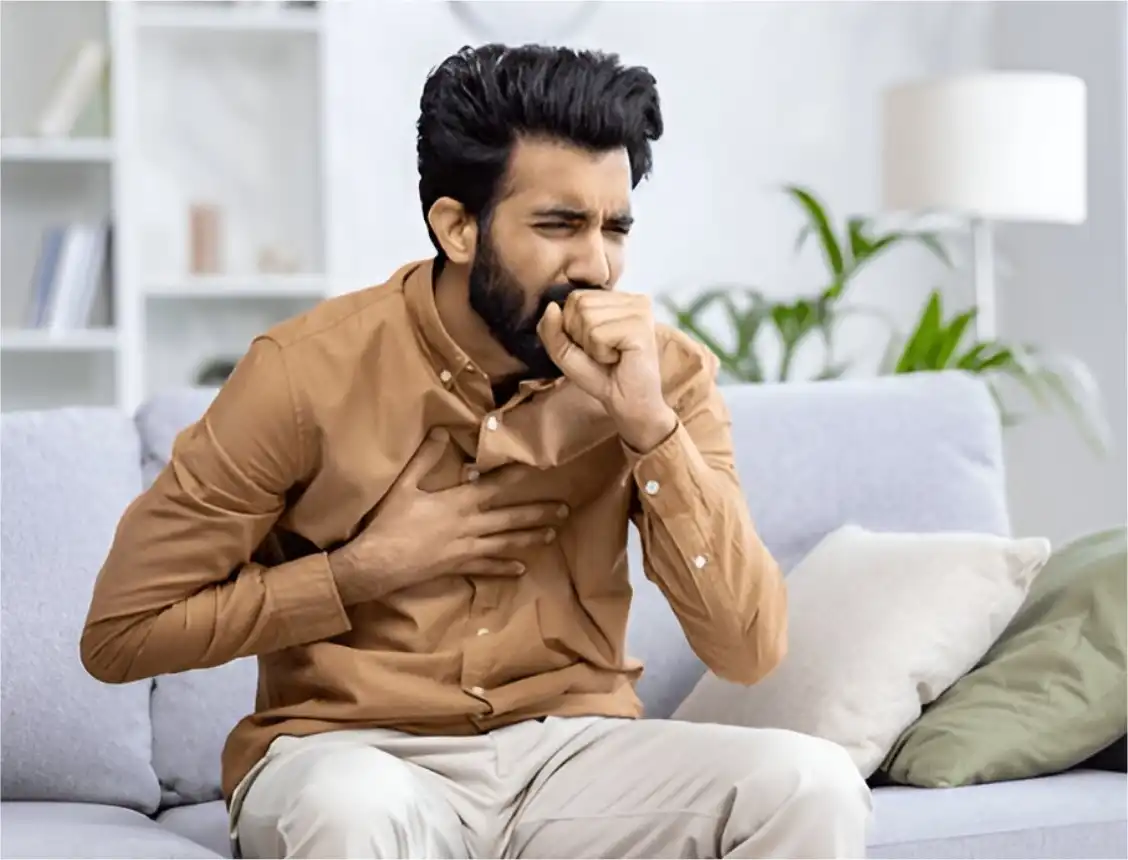Beyond the Cough: Common Lung Symptoms You Should Never Ignore
Home > Blogs > Beyond the Cough: Common Lung Symptoms You Should Never Ignore



Our lungs are amazing organs that never stop working. They bring in oxygen that keeps us alive and get rid of waste. We often don't appreciate how well they work until something goes wrong, even though they are essential to every breath we take. A simple cough might just mean you have a cold, but a lot of other common respiratory symptoms could mean your lungs need more care. It's very important to recognise these signs and get medical help right away, because finding out about them early can make a big difference in how you manage and treat different Chest & Respiratory Diseases.
The Important Work Your Lungs Do and the Problems They Face
The lungs, airways, and blood vessels make up the respiratory system, which is a complicated network that helps gas exchange happen quickly. When this fragile system is damaged, it can cause a wide range of problems, from short-term infections to long-term, progressive diseases. If you ignore symptoms that last a long time or are out of the ordinary, they could get worse, which could cause permanent damage or make your quality of life much worse. The first step to protecting your respiratory health is to learn how to read the signals your body sends you.
Never ignore these common lung symptoms
A doctor should take a closer look at a few key symptoms besides the occasional cough:
A cough that lasts longer than a few weeks, changes in character (like becoming chronic, producing mucus, or containing blood), or is accompanied by other symptoms is a red flag. It could mean anything from asthma or allergies to chronic bronchitis, GERD, or even worse problems like lung cancer or chronic obstructive pulmonary disease (COPD). A dry, persistent cough could also be a sign of Interstitial Lung Disease or other illnesses.
Shortness of Breath (Dyspnea): If you feel breathless, especially when doing things that used to be easy for you, like walking up stairs, or if you suddenly feel breathless while resting, this is a serious sign. It could mean that your lungs aren't doing a good job of getting oxygen to your body or getting rid of carbon dioxide. This could mean you have asthma, COPD, heart problems, or lung damage from a number of things. It's often one of the first and most serious signs of lung disease that is already there.
Not all chest pain has to do with the heart. If you have chest pain that gets worse when you breathe, cough, or sneeze, it could be coming from your lungs or the lining around them (pleura). It could be a muscle strain, but it could also mean that you have pleurisy (inflammation of the lining of the lungs), pneumonia, or even a pulmonary embolism (a blood clot in the lungs). You should always see a doctor right away if you have chest pain that won't go away or is very bad.
Wheezing or Noisy Breathing: When your airways are narrowed or blocked, you may hear a high-pitched, whistling sound when you breathe. This is often a sign of asthma. You should also look into other strange breathing sounds, like crackling or rattling, because they could mean that there is fluid in the lungs, inflammation, or something blocking the airways.
Unexplained Fatigue or Weight Loss: Chronic lung conditions, especially those that make it hard for your body to get enough oxygen, can make you feel tired all the time. If you lose weight for no reason, especially if you also have a chronic cough or shortness of breath, it could be a sign of a more serious lung disease or even lung cancer.
Recurrent Respiratory Infections: It's normal to get a cold now and then, but if you get bronchitis, pneumonia, or another lung infection often, it could mean that you have a chronic lung condition that makes you more likely to get sick. In these cases, it's usually a good idea to look more closely at your respiratory health.
Why it's important to get specialised lung treatment and expert care
Getting specialised Lungs Treatment is very important when these symptoms show up. A pulmonologist, a doctor who specialises in chest and respiratory diseases, can accurately diagnose the problem by doing a physical exam, taking a detailed medical history, doing pulmonary function tests, blood work, and advanced imaging like X-rays or CT scans. They can offer a full range of lung disease treatments, from medication and oxygen therapy to advanced nonsurgical lung treatments and individualised rehab programmes. Finding the Best Lung infections treatment Hospital makes sure that you can get the right tests and antibiotics for infections that keep coming back. For diseases like Interstitial Lung Disease, specialised care is very important to slow down their progression.
Finding a top-notch facility is very important for people who live in the area. The Best Lungs Treatment Hospital in Surendranagar offers specialised care, so you can get expert help from pulmonologists and the latest diagnostic and treatment tools right in your own neighbourhood. If you have a cough that won't go away or trouble breathing that won't go away, don't ignore it. Your lungs are very important. Getting checked out by a specialist right away can help you get a diagnosis early, manage your condition better, and greatly improve your quality of life.